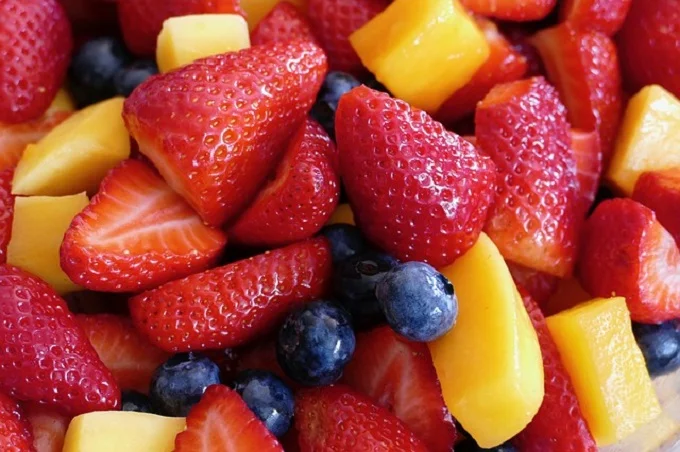Fruits and berries are rich sources of vitamins, minerals, and antioxidants necessary for the body. They also contain a small number of calories, so they can often be eaten even by those who carefully monitor their body. We have compiled the top 9 most useful berries and fruits, without which no summer should pass.
1. Apples
Apples contain intestinal fiber and flavonoid quercetin, a plant-derived substance that helps our bodies fight the damaging effects of oxidative stress. Also, these fruits reduce the level of “bad” cholesterol by 40%.
2. Cranberry
Cranberries are one of the healthiest berries for those who often suffer from urinary tract infections (UTIs). This berry contains the flavonoid proanthocyanidin, which prevents E. coli bacteria from sticking to the bladder’s walls, thereby protecting the genitourinary system from infl ammation.
The risk of developing UTIs is higher in women, so they need to consume cranberries more often.
3. Blueberry
Blueberries are one of the best sources of vitamin K, which supports bone health and wound healing, and antioxidants that protect cells from free radical damage: they increase the risk of cancer, cardiovascular disease, Alzheimer’s disease, and diabetes.
Blueberries do not lose their beneficial properties when frozen to be stocked up for the winter.
4. Plums
Plums contain twice as many polyphenols as other fruits. And polyphenols are substances that improve cognitive functions (memory, attention, the ability to absorb new information, etc. ), bone and heart health.
Most importantly, remember that plums have a strong laxative effect, so do not eat too many of these fruits at a time.
5. Strawberry
Strawberries are a tasty, low-calorie berry that is a good source of folate needed for red blood cell production and healthy cell growth, making them especially important for women in early pregnancy.
Strawberries also contain more vitamin C than citrus fruits.
6. Mango
Mango is rich in vitamin C, folate, and beta-carotene (a precursor of vitamin A). Research has linked beta-carotene supplementation to improved cognitive function, UV protection of the skin, and a reduced risk of certain cancers.
7. Cherry
Cherries are ideal for athletes. It relieves inflammation and joint pain, even in arthritis, improves overall physical endurance, reduces muscle soreness after exercise, maintains cardiovascular health, and helps sleep.
In addition, cherries contain polyphenols that normalize the digestive tract.
8. Kiwi
Kiwi is a low-calorie, sour fruit with little sugar. Kiwi improves protein absorption, so it is very beneficial for digestion: the fruit reduces bloating and can relieve stomach pain.
It is better not to combine kiwi with dairy products because due to the enzyme actinidin contained in this fruit, protein is quickly broken down, and the milk acquires an unpleasant bitter aftertaste. Actinidine is also an allergen for some people.
9. Bananas
Bananas are best known for their high potassium content. This substance is an electrolyte that helps muscles, nerves, the heart, and cells function correctly.
Bananas also help maintain fluid levels in the body, help control blood glucose, and increase insulin sensitivity, which is especially important for people with diabetes.
